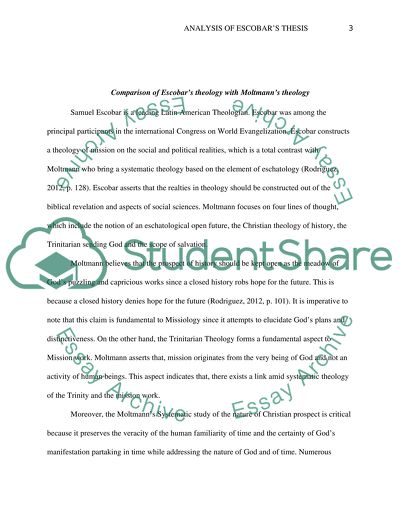Cite this document
(“Analysis of Escobar's thesis compare and contrast his theological Essay”, n.d.)
Retrieved from https://studentshare.org/religion-and-theology/1464287-analysis-of-escobar-s-thesis-compare-and-contrast
Retrieved from https://studentshare.org/religion-and-theology/1464287-analysis-of-escobar-s-thesis-compare-and-contrast
(Analysis of Escobar'S Thesis Compare and Contrast His Theological Essay)
https://studentshare.org/religion-and-theology/1464287-analysis-of-escobar-s-thesis-compare-and-contrast.
https://studentshare.org/religion-and-theology/1464287-analysis-of-escobar-s-thesis-compare-and-contrast.
“Analysis of Escobar'S Thesis Compare and Contrast His Theological Essay”, n.d. https://studentshare.org/religion-and-theology/1464287-analysis-of-escobar-s-thesis-compare-and-contrast.


